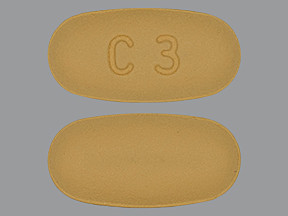RUCAPARIB - ORAL
PHONETIC PRONUNCIATION: (roo-KAP-a-rib)
COMMON BRAND NAME(S): Rubraca
GENERIC NAME(S): rucaparib camsylate
Uses
USES: This medication is used to treat certain cancers (such as ovarian, fallopian tube, or peritoneal cancer). It works by slowing or stopping the growth of cancer cells.
How to use RUCAPARIB - ORAL
HOW TO USE: Read the Patient Information Leaflet if available from your pharmacist before you start taking rucaparib and each time you get a refill. If you have any questions, ask your doctor or pharmacist. Take this medication by mouth with or without food as directed by your doctor, usually twice daily (about 12 hours apart). The dosage is based on your medical condition and response to treatment. If you vomit after taking a dose, do not take another dose at that time. Take your next dose at the regular time. Do not increase your dose or use this drug more often or for longer than prescribed. Your condition will not improve any faster, and your risk of side effects will increase. Since this drug can be absorbed through the skin and lungs and may harm an unborn baby, women who are pregnant or who may become pregnant should not handle this medication or breathe the dust from the tablets.
Side Effects
Precautions
Interactions
Overdose
Images
Reviews
Faq for RUCAPARIB - ORAL
Rucaparib is an oral medication used for the treatment of ovarian cancer. It belongs to a class of drugs called poly (ADP-ribose) polymerase (PARP) inhibitors.
Rucaparib works by inhibiting the PARP enzymes, which play a role in DNA repair. By inhibiting these enzymes, Rucaparib helps prevent cancer cells from repairing their damaged DNA, leading to their death.
Rucaparib is generally prescribed for adult patients with advanced ovarian cancer who have already received at least two chemotherapy regimens. It may also be recommended for patients who have a specific genetic mutation called the BRCA mutation.
Common side effects of Rucaparib may include nausea, fatigue, vomiting, diarrhea, decreased appetite, stomach pain, changes in taste, constipation, and headache. It is important to discuss any side effects with your healthcare provider.
Rucaparib is usually taken orally with or without food. It is important to follow the prescribed dosage and schedule provided by your healthcare provider. Swallow the tablets whole with water and do not crush, chew, or dissolve them.
Rucaparib may have certain precautions and warnings, such as the risk of developing bone marrow problems, potential harm to an unborn baby, and interactions with other medications. It is important to inform your healthcare provider about all your medical conditions, allergies, and medications you are taking.
Rucaparib is not a curative treatment for ovarian cancer but aims to slow down the growth and progression of the disease. It may help extend the time before cancer worsens or reoccurs.
Yes, Rucaparib can be used alone or in combination with other treatments, such as chemotherapy or other targeted therapies. The exact treatment plan will depend on the specific characteristics of the cancer and the individual patient.
The duration of Rucaparib treatment varies depending on the response to the medication and the overall treatment plan determined by your healthcare provider. It is important to continue taking Rucaparib as long as recommended, even if you feel well.
Disclaimer
IMPORTANT: HOW TO USE THIS INFORMATION: This is a summary and does NOT have all possible information about this product. This information does not assure that this product is safe, effective, or appropriate for you. This information is not individual medical advice and does not substitute for the advice of your health care professional. Always ask your health care professional for complete information about this product and your specific health needs.


No Reviews Yet